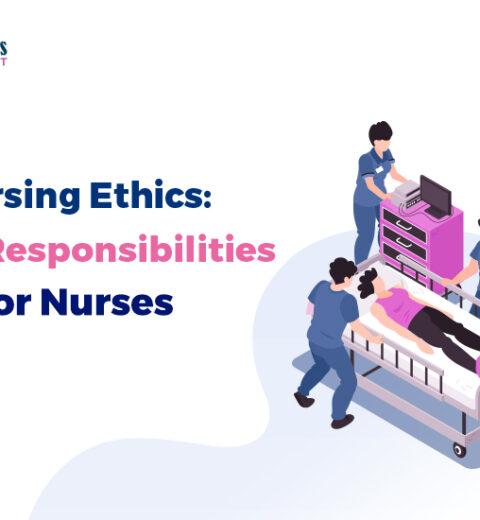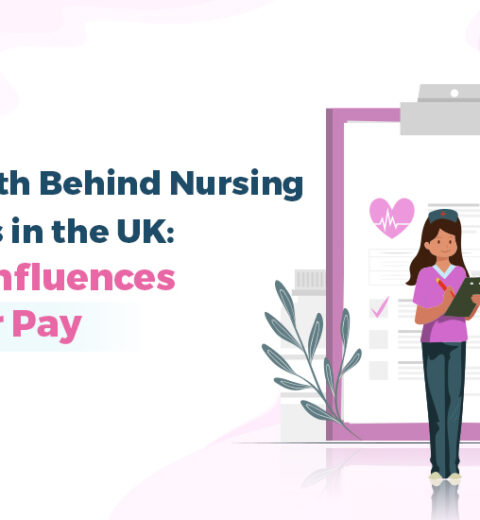Is ODP your area of specialisation or are you considering your career in the Operating Department Practitioner (ODP), then this blog is all that you should read. We have all the information in this post.
What is an ODP or Operating Department Practitioner?
Anyone who has undergone a surgical procedure previously will be familiar with the ODP to an extent.
An ODP is a skilled specialist who offers standard preoperative care to critical care patients. An important person of the surgical team, the ODP is the one who ensures patient safety, sets up the procedures inside the operating theatre, and carries out everything efficiently from the start till the end.
Basically, ODPs play a crucial role in the 3 phases of perioperative care:

- Anaesthetic phase: The ODP prepares the patients ahead of their surgery, excellently communicates with them, ensures to provide tailored care to their needs. Right from reassuring the patient to carrying out checks prior to the surgery, preparing the equipment, answering questions, they handle everything.
- Surgical phase: At this phase, the ODP works along with the surgeon by helping in the timely supply of surgical instruments and materials like knives, swaps, and microscopes. While operating, they are keen on anticipating the needs of the members of the team, therefore responding to them quickly and on time.
- Recovery phase: Even during the recovery phase, the ODPs have crucial functions to perform like monitoring a patient’s vital signs like oxygen levels, Blood Pressure, and heart rate. They take the pain relief or ventilation until the patient arrives at general anesthesia and then to the ward.
In short, ODPs are in every stage of an operation, starting from anesthetic, surgery, and recovery. They either hold a diploma or a degree to perform all these roles.
What does an Operating Department Practitioner do?
The ODP’s roles and responsibilities are unique and work in an interesting environment, the operation theatre! They play a versatile role by being on the scrub side of anesthetics in the recovery phase or might help deliver babies sometimes or save somebody’s life at some other point in time. Thus, an ODP may work in
- Intensive care units (ICU)
- Emergency departments (ED)
- Accident care units.
- Operating theatres and recovery rooms
- Maternity units
What are the roles and responsibilities of the ODP?
An ODP’s main role is to;
- Set up the operating theatre for the surgical team with equipment ready before each procedure
- Assess patients before surgery and care at each stage of the operation
- Maintain and check the cleanliness of the operating theatre
- Making the specialist equipment available for specific procedures
- Maintain up-to-date records to be ready for highly performing surgeons
Top skills needed for ODP
An ODP is expected to work with nurses, anesthetists, surgeons, theatre support workers, and doctors and is supposed to be a,
- Caregiver
- Good communicator
- Focused individual
- Possess organisational and problem-solving skills
- A good team player and a
- Problem solver
How to prepare for an Operating Department Practitioner?
Post successful completion of one’s qualification, which is either a two-year diploma or three-year degree from a university, it is necessary to take up continuing professional development (CPD) activities like:
- Meetings
- Lectures
- Courses
- Conferences
- Workshops
The above activities lead to a lot of chances for improvements and professional growth. With experience, there are opportunities to boost my career as a surgical care practitioner or a physician’s assistant. ODPs also have openings for managerial responsibility for the staffing and management of operating theatre suites.
Besides all the ones mentioned above, there are also other opportunities in areas like education, training, research, and development.
What is the salary of an Operating Department practitioner?
In the UK alone, there are nearly 13,000 registered ODPs and the situation calls for more! There is a huge demand for ODPs including full-time or part-time opportunities. Talking about salary, generally, an NHS band 5 ODPs receive over $21,000 and there are chances for a rise in the future.
By displaying advanced clinical roles and skills in the field, ODPs can gradually move into bands 6 and 7 gradually!
Be of significance by becoming an ODP
If you are someone who wishes to make a difference in the most vulnerable people’s lives before and after surgery, then ODP should be your choice. Contact JP Medicals Recruitment for the latest ODP jobs.
Whether you are a new apprenticeship, registered operating department practitioner, surgical care practitioner, operating department practitioner, or someone in an advanced clinical role, we offer you one in an exciting working environment and great financial support. We look forward to hearing from you.





